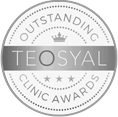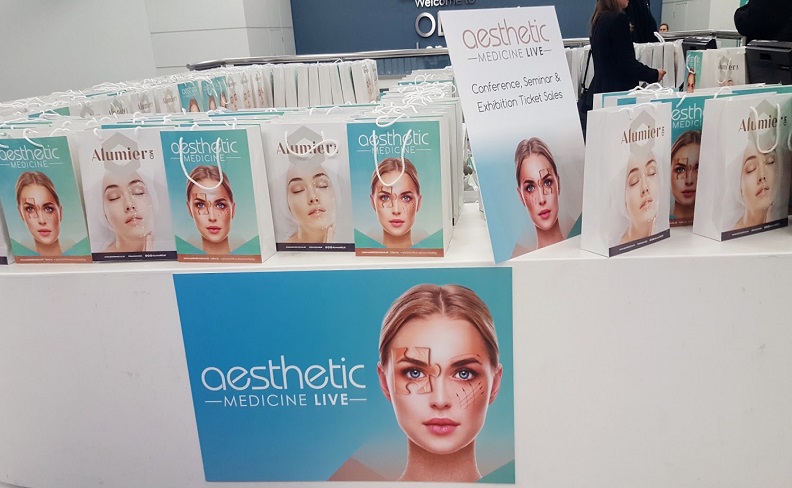-
Cosmedocs| Non Surgical
-
COSMESURG| Surgical
-
HARLEY STREET| Skin Care
FORMULATIONS -
| Skin Bar Clinic
 GLOW & GO
GLOW & GO
The Worrying Trend for Non-Medical Individuals Seeking Careers in Aesthetic Medicine
Demand for aesthetic training from non-medical professionals is on the rise. We frequently receive such enquiries:
“I have no medical qualifications but would love to learn to inject botox and fillers at your institute”
This is very alarming!
The UK’s aesthetic industry is rapidly flourishing and being valued as worth several billions of pounds, it offers even more prospects than ever.
This is due to not only the increased popularity of medical aesthetic treatments (e.g. botox and fillers) but also the ever-expanding beauty industry including salon/ spa treatments and cosmetic products (perfumes, creams etc). The amalgamation of both these industries has provided more opportunities than ever for people to look and feel their best.
The combination of smart phones and social media has resulted in glamorous celebrities and high profile figures being both photographed and viewed more than ever before. Social media platforms are packed full of images of faces that the public find desirable, and users are bombarded with both adverts for and celebrity endorsements of cosmetic products as well as videos of various cosmetic treatments. There are unprecedented levels of self-awareness of one’s image and consequently the demand to achieve the desired physical appearance has never been higher.
Beauty regimes no longer just consist of cleansing, toning and moisturising. Everyone seems “busier” than ever, yet booking an appointment at an aesthetics clinic for botox/fillers/chemical peels has become more mainstream, since it offers an opportunity for the public to pass the maintenance of their youthful looks to a professional, amongst the hustle and bustle of everyday life.
The rocketing growth of the industry has led to more people wishing to be involved in the business of providing aesthetic services. Constantly evolving products, a vast number of new innovative treatments and numerous pathways to specialise certainly makes it an exciting career choice. Both medical professionals (e.g. doctors and dentists) and non-medical practitioners (e.g. beauty therapists) have been attracted to working in the aesthetics industry.
Now the question arises…should non-medical individuals i.e. those who have not undertaken formal medical training be allowed to carry out treatments such as botox and fillers?
There are horrific stories of non-medical individuals performing botched aesthetic treatments:
Online searches reveal dozens of stories about non-medically trained “professionals” performing horrendous treatments and leaving patients with serious complications. We recently came across a YouTube video which featured a training company claiming to be collaborating with the prestigious Newcastle University to provide a facial dissection course exclusively for beauty therapists with no medical education.
When contacted, Newcastle University declined to have any associations with the company and said they were not collaborating to organise or host this course. Such stories are appearing on a daily basis, highlighting non-qualified or poorly qualified people carrying out dangerous treatments without any fear of regulations or the law. They are literally playing with the lives of vulnerable and naïve patients who approach these practitioners for improved facial aesthetics and end up not only having their looks ruined but also having had their lives placed in danger.
This topic has been the most debated subject in the cosmetic industry…Is it right that non-medical individuals should be able to attend aesthetic training courses and administer fillers and prescription-only medications such as Botulinum toxin (botox)? Are beauty therapists with as little as NVQ level 3 safe and qualified enough to meet the standards of medical qualification?
Firstly it is absolutely wrong to consider beauty therapists and other non-medical individuals to be remotely equivalent to medical aesthetic practitioners (such as doctors and dental surgeons). It is quite frankly discourteous towards those who have spent years of hard work and dedication achieving their degrees and post-graduate training.
Secondly, if it was appropriate for non-medical individuals to be performing such treatments, why are they not already trained as part of their most advanced training? The answer is quite simple – by law prescription only medications such as botox can only be prescribed by a medical practitioner. These therapists would have to work through a medical practitioner who was prepared to provide and be responsible for prescription only substances going into potentially dangerous hands.
Thirdly, non-medical practitioners cannot be held accountable for performing aesthetic treatments in the same way as doctors, dentists and nurse prescribers. The regulatory and governing bodies which medical professionals are accountable to simply don’t exist for non-medical individuals. When one attends a consultation with a medical professional there is an obligation to be provided with a full aesthetic consultation and examination. The risks, benefits and possible complications of a treatment (and its management) are discussed. Non-medical therapists are only able and expected to provide a basic cosmetic evaluation and perform a beauty treatment. Treatments such as dermal fillers can cause extremely dangerous complications such as vascular occlusion and blindness. It is therefore irresponsible for non-medical practitioners to be allowed to administer such treatments, as they are not qualified and required to know the intricacies of facial anatomy or qualified to deal with medical emergencies.
and the management of medical emergencies.
Essentially there is an issue of “double standards” occurring. As far as a patient is concerned, having a specific aesthetic treatment should be standardised regardless of where they go to have it done. The reality is though, that are two distinct groups providing the same treatment; one group being suitably educated with medical degrees and another potentially having only an NVQ level of education.
Administering aesthetic injectable treatments correctly and safely is not a piece of cake! It requires deep knowledge of anatomy, physiology, risks, complications involved and background medical knowledge. Doctors, dentists and some nurses have this and ensure that patient safety is their number one priority.
Regulations for medical professionals are set to increase further:
Following on from Sir Keogh’s Report, the General Medical Council (GMC) has voiced the concerns of medical professionals and has recently released new legislation for aesthetic practitioners. According to it, medical professionals practicing cosmetic treatments are required to register their independent aesthetic clinics with the regulatory body and will be subject to regular inspections.
However, these regulations have failed to pinpoint beauty therapists and other “cosmetic cowboys” who are putting people’s lives in danger. They simply remain unregulated. Meanwhile, and with good cause, doctors, dentists and nurses undergo though and stringent regulations and inspections, making them answerable to the public as well as to their professional regulatory bodies.
The risk of putting tighter regulations on medical professionals yet no regulation at all on non-medical practitioners may actually have negative consequences. Doctors and other medical professionals may have to increase the price of their treatments further to cover the costs of registration with the regulatory body, potentially driving clients to seek treatment elsewhere with non-medically qualified individuals.
The Responsibility of Aesthetic Training Institutes:
Training Institutes have a very important role to play in this situation and need to take responsibility for whom they train. Although here at The Harley Street Training Institute we never train beauty therapists, there are many other courses and institutions that remain to do so. Some nationally known universities offer cadaveric dissection classes for beauticians!
This practice needs to come to an end! If they wish to have training in aesthetic medical treatments, such as botox and fillers, they should adopt the right path i.e. obtain training in anatomy, physiology, biochemistry, pathology, clinical medicine and surgery, which would entail attending medical, dental or nursing school.
The Bottom Line:
There is a dire need for regulations specifically governing non-medical individuals providing aesthetic treatments. New regulations have already been imposed on the already tightly controlled medical professionals. Although regulations involving patient safety and quality of care are always a welcomed step amongst medical professionals, regulation of non-medical practitioners should have been addressed first. The aesthetic training institutions should never allow beauty therapists and other non-medical individuals to undertake their training courses, which would help discourage such practitioners entering the industry.
Philip Gray
Related Posts
We use cookies to give you the most relevant experience, Cookie Policy.
See What Our Fellows Have Been Up to Recently
Historically, aspirating before administering certain injections, especially intramuscular ones, was standard practice. The main reason for aspiration was to avoid injecting medication directly into the bloodstream, which could cause adverse reactions or reduce the effectiveness of the medication.
However, the necessity and relevance of this practice have been debated in recent years. Some recent guidelines and studies suggest that aspiration may not be necessary for all types of injections. For example, it’s generally agreed that aspiration is not required for subcutaneous injections because there are fewer large blood vessels in the subcutaneous tissue that could be accidentally punctured. For intramuscular injections, the necessity of aspiration might depend on the injection site. For instance, aspiration is still recommended by some for injections in areas where large blood vessels are present, but it might be considered unnecessary for other sites.
The shift in practice is partly due to a better understanding of anatomy and the low risk of injecting into a blood vessel in certain areas, along with a desire to streamline the injection process and reduce patient discomfort. However, opinions and practices vary, with some healthcare professionals continuing to advocate for aspiration as a precautionary measure, while others view it as an unnecessary step for most injections.
#aestheticmedicine #dermalfiller #aceconference

Understanding depth, volume, and pressure can enhance a practitioner’s skill set, enabling them to provide more valuable services to their clients using their existing tools. #aestheticmedicine #dermalfillertraining #wrinklefree

Mastering hand stability isn’t magic, it’s a mix of experience & targeted learning 🎯 Our students get ahead with specialized techniques, paving the way for precise injections! 💉#SkillDevelopment #FutureHealthPros
.
.
.
.
.
#dermalfillertraining #aestheticmedicine #botoxtraining

Virtually any area can be reached using a cannula #fillertraining #aestheticmedicine #hsifellowprogram

“Unlock Your Aesthetic Potential with Harley Street Institute’s Fellowship! 🌟 Elevate your skills in aesthetic medicine through our intensive hands-on training in Botox and Dermal Fillers. Get ready to sculpt beauty, one injection at a time! 💉✨ Join us for a transformative learning journey that takes you beyond the classroom and into real-world expertise. Are you ready to master the art of enhancing natural beauty? 💫 #HarleyStreetFellowship #AestheticMedicineMastery #SculptingBeauty”

Link in bio
"Unlocking the Secrets of Masseter Botox: Empowering smiles, one injection at a time! 💉💪 Join me on an exciting journey as we delve into the world of Masseter Botox. Learn the art and science behind this transformative procedure, and discover how it can redefine facial aesthetics. Don`t miss out on this opportunity to enhance your skills and expand your practice. Let`s reshape faces and build confidence together!
Link in bio.
#MasseterBotoxCourse #FacialAesthetics #TransformativeProcedures #SmileEnhancement #ContinuingEducation
#aestheticmedicine

💭Have You Ever thought :
👉🏼What lies beneath the orbicularis oculi ?
👉🏼Why do I need to have the correct depth ?
👉🏼How to avoid an asymmetric smile, periorbital edema or a shelf like look at the lid/cheek junction ?
⚠️We all know that when treating crows feet, we are administering botox into the orbicularis oculi, and that there are complications but which and how?
‼️Too inferior or deep🟰 an asymmetric smile
(you’ve hit the zygomaticus minor muscle and major if you’re really too inferior!)
‼️Too medially 🟰 periorbital edema
(and you’re the periorbital region )
Located just underneath the skin, the orbicularis oculi has multiple origin and insertion points. A paired muscle, that overlies the periorbital region in a circular manner.
⚠️The wrong location, the wrong depth can result you injecting botox into a completely different muscle.

Welcome to the under eye region, an area of the face that can often show signs of aging such as wrinkles, hollows, and dark circles. Today, I want to share with you how fillers can be used to address these concerns by injecting them into different layers of the skin.
Using a needle, we can inject fillers into the dermis layer of the skin to improve the appearance of fine lines and wrinkles. This can help to smooth out the texture of the skin and create a more youthful and refreshed look. However, it’s important to note that injecting fillers into this layer requires specialized training and experience to ensure safe and effective results.
In addition to the dermis layer, fillers can also be injected into the bone to help address deeper hollows and shadows under the eyes. This technique requires a higher level of expertise as it involves precise placement of the filler to achieve the desired outcome.
Lastly, fillers can be injected into the fat compartment of the under eye region using a cannula. This method can help to add volume and smooth out any irregularities in the fat pads under the eyes. Again, specialized training and experience are crucial for safe and effective results.
Overall, the use of fillers in the under eye region can provide a non-surgical solution to address signs of aging and enhance the appearance of the face. However, it’s important to seek out a qualified and experienced provider who has received proper training in the use of fillers in this delicate area.
If you’re interested in learning more about how fillers can benefit you, please don’t hesitate to reach out and schedule a consultation. Let’s work together to help you achieve your aesthetic goals!
#cosmedocs #harleystreetinstitute
.
.
.
.
#lifestyleblogger
#selfcarematters #aestheticmedicine
#beautytips
#skincarecommunity
#antiagingtips
#makeuptutorials
#selfcarelove
#aestheticbeauty
#lifestyleinspo #lifestyleblogger
#selfcarematters #dermalfillertraining
#beautytips
#skincarecommunity
#antiagingtips
#makeuptutorials
#selfcarelove #dermalfillers
#aestheticbeauty
#lifestyleinspo
#antiagingsecrets
#harleystreet #drahmedhaq #oxforduniversity
#harleystreetinstitute

The mentalis muscle is a facial muscle located in the chin area. It originates from the mandible and extends downward to the skin of the chin. The primary function of the mentalis muscle is to control the movement and position of the lower lip and the skin of the chin. It plays an important role in activities such as speaking, smiling, and pouting.
In addition to its role in facial expression, the mentalis muscle also helps to maintain the position of the lower front teeth and the shape of the lower lip. Dysfunction or hyperactivity of the mentalis muscle can lead to the development of chin wrinkles, which are vertical lines that appear on the skin of the chin. Understanding the anatomy and function of the mentalis muscle is important for healthcare providers when performing aesthetic procedures in the chin area.
Online Course With Video Demo
www.harleystreetinstitute.com
#botoxtraining #mentalistreatment

#Repost @dranabilamzavala with many thanks 🙏 and best wishes for the future.
Esta semana tuve la oportunidad de estar en Londres en una de las mejores clínicas con los mejores equipos de Medicina Estética en el mundo, perfeccionado técnicas de Rinomodelación con el Dr.Ahmed Haq.
——
@drahmedhaq You are simply incredible, thanks for the hands on and all the new techniques you shared. @drahmedhaq @harleystreetinstitute @cosmedocs
.
.
.
#aestheticmedicine #dermalfillertraining #nosejob #medicaltraining #plab #harleystreet #10harleystreet #aesthetics

Huge Congratulations to Mariana, on completing her foundation course in Aesthetics Medicine with us here at Harley Street Institute. 🥇✨
This combined course covers the necessities required for daily clinic practise, whether starting out or refreshing skills. Our small group training (4:1) provide unparalleled mentorship at any of our training days.
#cosmetictraining #aesthetics #hsi #cosmetics #cosmedocs #harleystreetcourses #foundationcourse #london

Only courses with true mentorship. #botoxtraining #dermalfillertraining #aestheticmedicine #hsifellowprogram #harleystreetfellowship

Huge congratulations to @onemedicalclinic for completing her Fellowship in aesthetic Medicine with us at Harley Street Institute 💫💫✨ We are so proud of having you 🥰
#Repost
Dr Crystal:”When I completed medical school 13 years ago, one of my cherished mentors gave me advice that has stayed with me for life - “never stop learning; it makes the difference between being good and being great."
From my years of Ophthalmic-surgical training to becoming a student of Public Health to my experience as a legislator in Parliament to operating my own
Medical and Aesthetic Medical practice, the lessons learned have been varied and valuable. 🤓
On this occasion my commitment to lifelong learning led me to Harley Street, London. I didn’t just want to be a good injector, I needed to be a great one so I needed to go where the great injectors were. 💉
Every day for the last two months I was immersed in one-on-one intensive training with the aim of mastering my injectable skills and thanks to the incredible team of doctors and trainers at @cosmedocs
@harleystreetinstitute l am proud to say Mission Accomplished! “

Huge Congratulations to Dale Rae for completing the Certificate in Aesthetic Medicine training program. 💫💫
💉The 3-day Aesthetic Medicine Certificate is tailored towards new practitioners who are ready to kick-start their career in Aesthetic Medicine. It aims to provide an in-depth understanding of the Layers of the Skin and Biological Ageing Process. The package also includes our most popular Foundation Botulinum Toxin and Dermal Fillers course, including an introduction to using cannula.
💉It is an Intense 3-day course incorporating essentials basic and advanced botox and dermal filler procedures combined with popular skin treatments perfect for the beginner all-rounded aesthetic practitioner.
You will be provided direct mentorship by our various cosmetic practitioners who are experts in performing their respective aesthetic treatments.
💉Small group training under the direct supervision of our experienced aesthetic trainers. Master procedures to an advanced level. Learn theory, consultation methods and manage client expectations as well as complications.
🙌 DM for more details. #aesthetic #dermalfillers #detmalfillertraining

Aesthetic medicine is an art. It`s not enough to know facial anatomy or to be a good injector. The best aesthetic doctor has an artistic eye. Sometimes this is a skill that can be developed over years. Being able to assess a fa ce within seconds of walking into a room. Knowing exactly how injectables can be used for subtle and natural results.
The end result should not be obvious to an untrained eye.
It`s such a shame to see overfilled faces exaggerating proportions. When really, the main aims are to restore volume lost or correct natural imbalances.
#aestheticmedicine #dermalfillers #beauty
Repost @cosmedocs

Huge Congratulations to @erikatydermatology for completing her Fellowship in Aesthetic Medicine with us at the Harley Street Institute 💫💫💫
Our Aesthetic Fellowship is the pinnacle of training for those seriously interested in escalating their careers.
.
Our fellows are taken on board within clinic over 3 months with weekend workshops, 1-1 mentoring, treatment log book and clinical assistance.
.
Following on from this they have the opportunity to have Independent Fellow Clinics to improve their confidence with patient consultation and individual treatment planning.
.
We believe that this is the future of aesthetic traning to ensure that practitioners have captured all the essential skills for successful careers.
.
We have been extremely proud of our old fellows, many who have moved on to now work with some of the most prestigious clinics in London.
.
Next enrolment periods: TBC
.
To find out more information or to apply, please email your CV to [email protected]
.
#thefellowship #harleystreetinstitute #doctorsanddentists

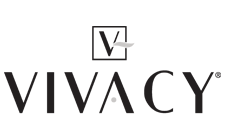

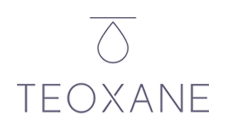
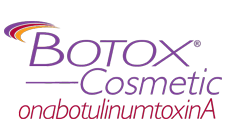




Note: if you did not get the email, please check spam/junk folder
